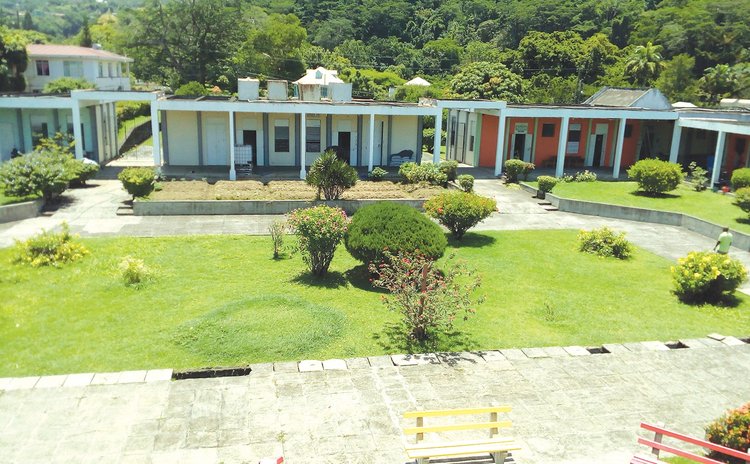Infirmary cries for help

The cash-strapped Dominica Infirmary is appealing to relatives of its residents and other compassionate persons to contribute financially to the upkeep of the institution.
Board Chairman Thomas Holmes said, "Some people when they bring their people here, they never turn back…and some of those people that live at the infirmary have their homes . . . and land, which their children are using and they don't bring one cent for [their parent's] care."
Furthermore, the Infirmary is sometimes saddled with the responsibility of paying funeral expenses when residents die and their relatives simply ignore this duty.
As such, the management of the infirmary is struggling to deal with serious financial challenges and is urging the public and the corporate community to lend a helping hand.
Holmes and Director Annie St Luce noted that the infirmary currently has 86 residents and it takes more than $3,000 per month to adequately cater for the needs of each resident.
They pointed out that all residents have special needs and require special care and amenities, so the infirmary's monthly expenses include diapers, utilities, groceries and medications.
Holmes and St Luce said the infirmary gets a monthly subvention of $82,000 from Government, but about half is used to pay 45 members of staff.
Holmes said some have not had a salary increase for several years and many undertake double duties.
Referring to the monthly subvention, Holmes said, "We are thankful . . . because if it wasn't for the government the infirmary would not be here today."
But he added that the infirmary is being run with just $90,000 a month right now and it needs $160,000 per month to function effectively.
"We are juggling our expenses to make it through from month to month," St Luce said, noting that the subvention was decided when funeral costs were not part of the Infirmary's expenses.
She added that the institution can only afford to hire four nurses at this time, but it actually needs at least 10. "We need more staff in order to have a proper night shift.
"We are not able to do that. We need to be able to pay off some bills. We are not able to do that…" St Luce said, adding that they also cannot afford essential maintenance work.
To generate more revenue, Management has decided to resuscitate a day-care programme in a partially outdoor area of the infirmary with a common sleeping area section and tables and chairs where residents can relax and play indoor games.
Additionally, a short-stay facility is being implemented that allows caregivers pay a fee to have their elderly relatives cared for at the institution for agreed periods until they return.
Management also encourages private and corporate citizens, churches, youth groups and other NGOs to adopt a ward at the infirmary and cater for one or more of the needs of its residents.
Citizens can also help with the upkeep of the infirmary by contributing materials, supplies, skills or food-- especially local produce and fish.
"Our residents . . . our elderly . . . love their provisions, but it is very costly for us to provide and sometimes can be scarce," St Luce said.
Management is also appealing to family members of residents to show interest and visit and take their elderly relatives home on special occasions so they can feel loved and wanted.
Meanwhile, management wants to eliminate the undeserved stigma attached to the infirmary, that it is a place for abandoned people where they get bad treatment.
Both St Luce and Holmes emphasised that the institution makes a concerted effort to provide a homely environment and give residents round the clock care and attention.
St Luce said the residents are well groomed and hardly have pressure sores and infections. They get sufficient exercise and balanced meals daily, she said.
In 2014, Prime Minister Roosevelt Skerrit lamented that family members are the sole beneficiaries of the possessions of their relatives at the infirmary, yet the State has to bear significant responsibility for their care.
He said that relatives should be made to sign a document assigning their elderly resident relatives' pension to the institution for its upkeep.
"And if you have land, you should sell the land or bequeath the land to the infirmary so that they can liquidate it so that they can help pay for your maintenance," he said then.




